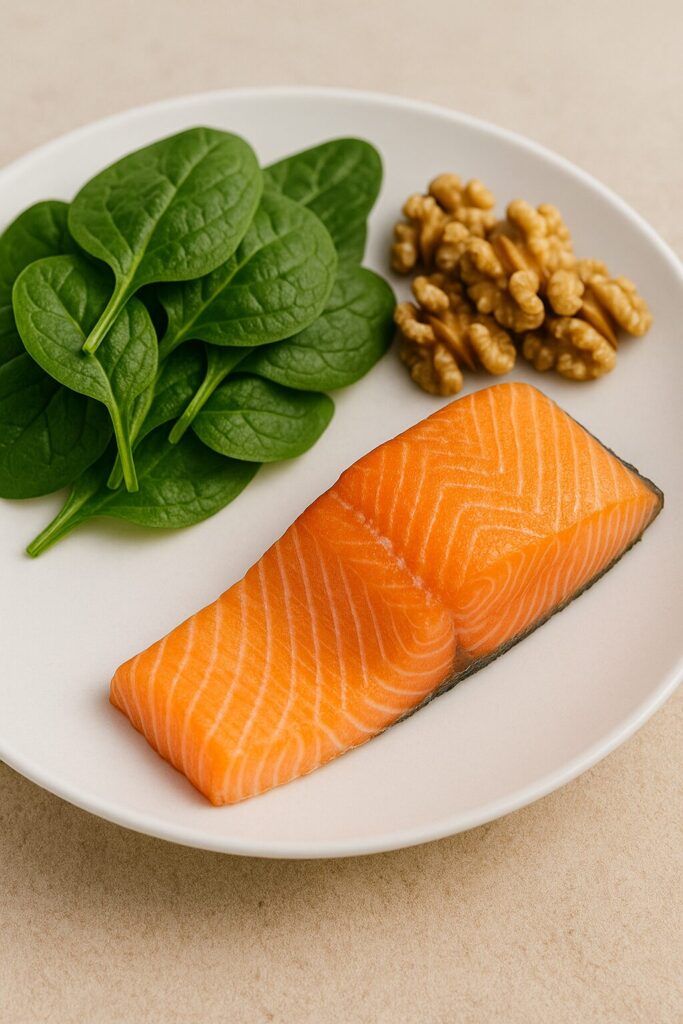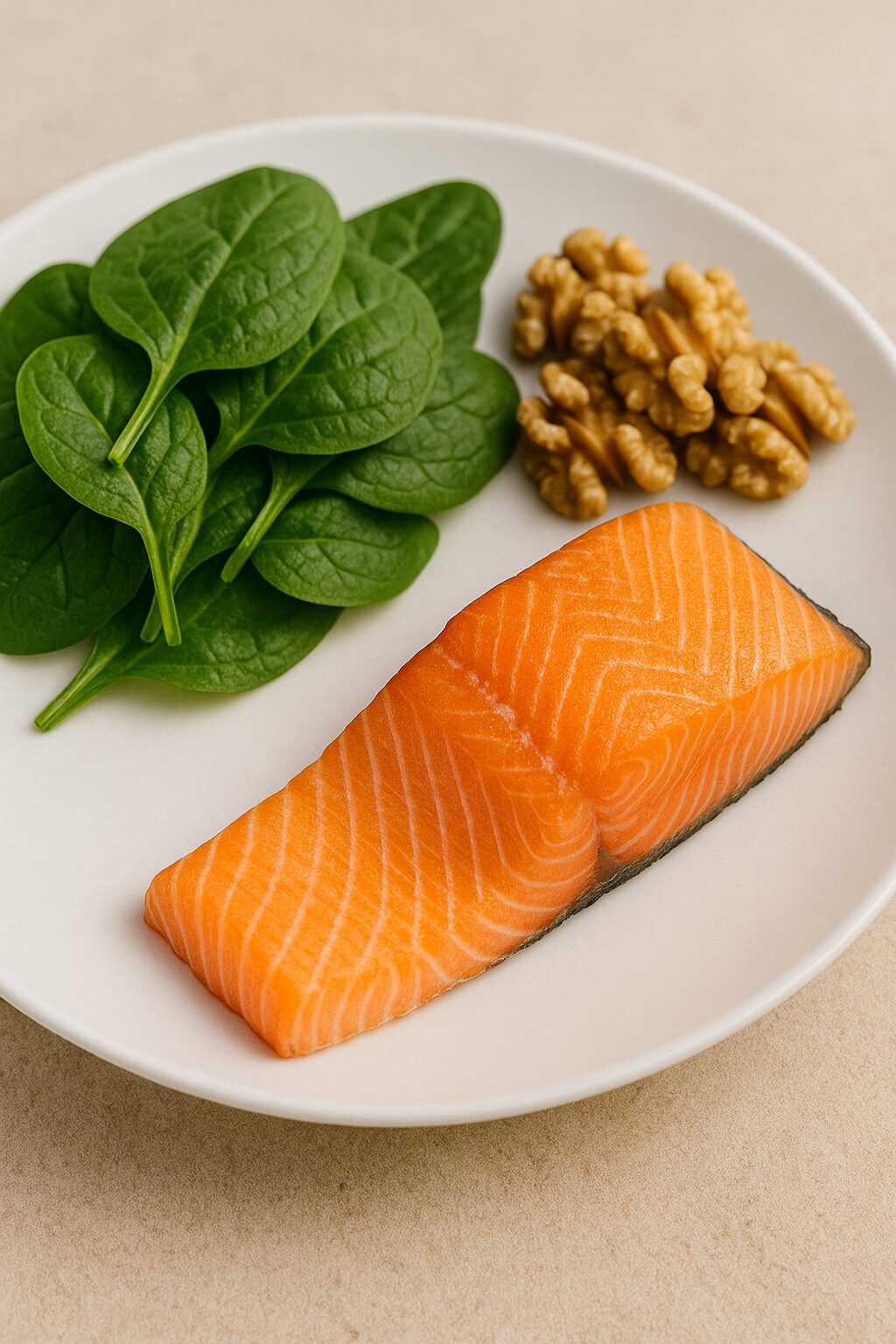Efficient blood circulation is essential for delivering oxygen and nutrients throughout the body. When circulation is compromised, symptoms such as cold hands, fatigue, or swelling may appear. Certain foods and nutrients could help support vascular flexibility, reduce inflammation, and promote overall cardiovascular health. This article highlights key dietary elements that may aid healthy blood flow.

1. Fatty Fish and Omega-3 Fatty Acids
Fish such as salmon, mackerel, sardines, and tuna are rich in omega-3 fatty acids. These compounds may help reduce triglyceride levels, support vascular elasticity, and decrease blood clot formation, all of which contribute to smoother circulation.
2. Antioxidant-Rich Fruits and Vegetables
Berries, tomatoes, spinach, and broccoli are high in antioxidants such as vitamin C, vitamin E, and polyphenols. These nutrients may help protect blood vessels from oxidative damage and support improved blood flow.
3. Magnesium and Potassium Sources
Bananas, sweet potatoes, avocados, and leafy greens provide magnesium and potassium. These minerals play a role in regulating blood pressure and supporting proper contraction and relaxation of blood vessels, which could improve circulation.
4. Beets and Nitric Oxide Production
Beets contain natural nitrates that convert into nitric oxide in the body. Nitric oxide may help relax blood vessels, promote oxygen delivery, and enhance endurance during physical activity.
5. Dark Chocolate and Cocoa
Flavanols in cocoa may support endothelial function and stimulate healthy circulation. Choosing dark chocolate with higher cocoa content and less sugar may provide vascular benefits along with mood support.
6. Vitamin B Complex
B vitamins such as B6, B12, and folate help regulate homocysteine levels in the blood. High homocysteine is linked to poor circulation and cardiovascular risk, and balanced intake of these vitamins may reduce that risk.
7. Hydration and Herbal Teas
Adequate water intake is important for maintaining healthy blood viscosity. Herbal teas such as green tea, hibiscus tea, and rosemary tea may also support vascular health and relaxation.
8. Nuts and Seeds
Walnuts, almonds, chia seeds, and sunflower seeds provide unsaturated fats, vitamin E, and minerals that may support vascular function and protect against oxidative stress.
9. Garlic and Onions
Compounds such as allicin in garlic and quercetin in onions may help reduce platelet aggregation and promote vessel dilation, contributing to smoother blood flow.
10. Healthy Oils
Extra virgin olive oil and avocado oil provide unsaturated fats and antioxidants that could help reduce inflammation and support vascular elasticity when used in place of saturated fats.
🌿
Including circulation-friendly foods such as fatty fish, fruits, vegetables, nuts, garlic, and healthy oils may help maintain blood flow and cardiovascular wellness. Combined with regular activity and balanced lifestyle habits, these dietary choices could play a supportive role in long-term vascular health.
References and Further Reading
National Institutes of Health (NIH) – Nutrition and Cardiovascular Health
American Heart Association – Healthy Diet and Blood Flow
World Health Organization (WHO) – Dietary Guidelines
※ This article is for informational purposes only. Individual needs may vary, and professional medical advice is recommended before making dietary changes or starting supplements.
